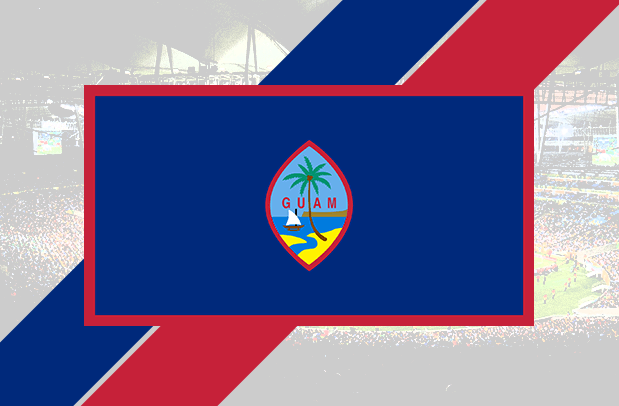With another relatively big name moving to the Middle East, Hamoudi Fayad throws light on how this isn’t just for the publicity but a step in the right direction to improve the quality of football there.
Ryan Babel arrives in the UAE after a series of deals bringing in the likes of Thiago Neves, Jorge Valdivia and Denilson amongst others. All of these players have excelled at some point in their career, with the latter being a Premier League player under Arsenal for some time. Valdivia is an elegant, yet undiscovered gem who never played in Europe – discounting loans – and according to many failed to pursue a career of greatness. His time at Palmeiras and Al-Ain – far from Europe – were significant points during his career.
Thiago Neves, just off the back of his 2nd spell in Riyadh for Al-Hilal moves to the Pride of Abu Dhabi (otherwise named the Manchester City of the UAE; Al-Jazira) as they are fondly known as. Possessing the best attendance in the UAE and the biggest stadium there too, Thiago Neves has a lot to look forward to with a team whose average finish in the Arabian League is a highly 3rd place (the highest in Emirati football, currently).
What does this signal towards Emirati football? The league is growing, players from abroad – between the years of 21 and 28 – are being imported to aid in their growth as a footballer. Players in their prime will engage in the league and showcase their talent on the Asian stage, unlike previously where Gulf, Chinese and even American leagues were famed as retirement homes. The transfer of Xavi heavily contradicts my previous statement, however Manuel Lanzini and Everton Ribeiro would beg to differ.
Lanzini completed his first season at Al-Jazira with the highest league assists (9) while Everton Ribeiro helped Al-Ahli to the last 8 of the AFC Champions League, a first for their club. In the final ACL group game, he scored and assisted as Al-Ahli came from 2-1 down to defeat Iranian outfit Tractor Sazi and take his team from the verge of elimination to a last 16 spot. A glamorous tie with the UAE league champions Al-Ain ensued, and I had the pleasure to watch Ribeiro live for the first time. It’s safe to say that having watched the likes of Lionel Messi, Xavi, Phillipe Coutinho, Alexis Sanchez and Andres Iniesta live – Everton Ribeiro ultimately ranked very highly amongst not just myself, but Asian football fans alike. Although Carlos Munoz left the club, Ribeiro made do with what was at hand and formed a formidable partnership with the rejuvenated Emirati striker Ahmed Khalil, who although popped up on the stage almost nine years ago, is only 23 today and left with a very disappointing gaze from the Asian football faithful. A player destined for greatness and a move to Europe, ended up not matching the heights of his infamous brother’s career: Faisal Khalil.
Moving on, Asamoah Gyan’s possible reluctance to leave Al-Ain for Qatari side Lekhwiya or Shanghai in China further strengthens the power that Emirati teams possess on one side (however I firmly believe that should an offer over £15m come in, Al-Ain should definitely accept). The incoming Ryan Babel will definitely shine light on a league increasing in popularity, quality and consistency. A winger still of good quality to play in the European Champions League, he will now ply his trade in Asia and bid to help Al-Ain towards their 2nd ever Champions League title.
Babel replaces the outgoing Miroslav Stoch who returns to Fenerbahce after a season long-loan, a very decent spell marred by his Asian football ban. Now, it is up to Babel to fill the void left by Asamoah Gyan’s persistent injury problems, Omar Abdulrahman’s lack of goal scoring prowess and the departure of former Rennes winger Jires Kembo-Ekoko. This is where, I believe, Babel will add to with his trickery and pace possibly proving vital to a team possessing a dearth of dynamic goal scoring ability up front.
Al-Ain were blunt against Al-Ahli and Al-Nasr in the AFC Champions League and President’s Cup respectively, and when they scored three against the former in the 2nd leg it was after a brace from none other than the ever-reliable (when fit) Asamoah Gyan.
Therefore, returning to my point, players are no longer brought in for their popularity, previous quality or simply experience – but because they will add a certain level to a part of the team. Babel adds promise in various positions up front whereas I just mentioned Al-Ain lacked due to Gyan’s injury. Thiago Neves undoubtedly adds more experience, quality and his familiarity with the Middle Eastern game in attacking midfield. Jorge Valdivia will also fill the void in creativity and goal scoring, where his understanding of the region and league will help Sebastian Tagliablue’s peculiar hit-and-miss performances last season become a fairy tale.
In fact, take it from a manager who has worked with Pep Guardiola and JuanMa Lillo. Interviewing Raul Caneda for ahdaaf.me, former manager of La Liga and Saudi Arabian clubs, he tells me that “in the Middle East there is no sense of positional play, just pace and direct football. But we can see it change with coaches coming in to add their experience and knowledge to the game here” and with the likes of Zlatko Dalic and Cosmin Olaroiu – none doing much outside of their home countries in Croatia and Romania – proving their strength in the region with their tactical acuity.
(See here on how Cosmin Olaroiu turned Al-Ain into the Manchester United of the Emirates and Zlatko Dalic proving his Mourinho-esque adaptability in important games to help them win the title and reach the AFC Champions League semi-final )
All in all, Middle Eastern football fans can look forward to a promising 2015-16 season as more and more transfers signal an act of team building and progression, as opposed to stardom and foreign attraction.
Written by Hamoudi Fayad
- Hipster Guide 2016-17: Bayer Leverkusen’s tactics, key players and emerging talents - August 25, 2016
- Talent Radar: Saudi Pro League 10 Young Players (U-23) to Watch in 2016-17 - August 23, 2016
- Dry Grassroots: Youth Football Deficiencies in Western Asia - July 19, 2016

























































